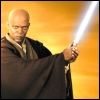Search the Community
Showing results for tags 'aes'.
-
I just bought a brand new PowerCab 212 Plus to go along with my collection of Line 6 gear. I plugged it in and tried to connect it to my POD HD 500 via L6 Link. Unfortunately, I can't get the L6 Link to work at all. When I power on the POD, I hear a few momentary clicks & pops in on the PowerCab, but no audio. I can connect via the analog outputs from the POD to the PowerCab, and that works fine, but I would much prefer to run a single digital cable instead of two analog cables. I opened a ticket with Line6 support, but unfortunately we are out of ideas to try. The things I have tried so far to get the L6 Link connection working are: Several different AES and XLR cables, including a brand new AES cable Connected two different POD units to the PowerCab, a POD HD 500 and a POD HD 300 Updated firmware on all of the units to ensure latest version Different power up / power down sequences and connection sequences Different settings within the POD HD 500 for outputs (page 4 of 12 in settings): Studio/Direct, Combo Front, Combo Pwr Amp, Stack Front, Stack Pwr Amp Different settings within the POD HD 500 for L6 Link Audio (page 9 of 12 in settings): Amp #1 Left/Right, Amp Model A, and Amp Model A/B Performed a full factory reset on the PowerCab 212 Plus via the settings I know that I likely won't be able to control detailed PowerCab parameters via L6 Link with the POD HD 500 or POD HD 300, but basic audio should work over L6 Link. Even trying everything above, I have not been able to get any sound, only a handful of faint clicks & pops when the system first powers up. Has anyone else been able to make this work? Any other things I could try? Any help or ideas would be greatly appreciated. Also, just knowing that someone else has successfully connected a POD HD 300 or 500 to a PowerCab via L6 Link would be good information. Thanks! Carl
- 7 replies
-
- l6link
- powercab 212
-
(and 3 more)
Tagged with:
-
Greetings! New user here. I'm trying to interface our new Helix rack to our Yamaha DM2000 console via the Helix AES/EBU output. I'm running the AES out to one of the AES ins on the board. Both the board and the Helix are master clocked via word clock from an Apogee Big Ben at 48kHz. I've gone through all settings in the Helix, selected AES/EBU instead of SPDIF for the output and set clock to external wordclock. High quality 110 ohm XLR cable (15') interconnect. The odd thing is that not only do I get no audio, I don't even get clock on the Helix AES out. There must be something I'm missing as the unit is advertised as working this way..... Otherwise the Helix seems fine. Running the analog outs to our Pro Tools HDX system and no problems. Anyway, maybe someone's run into this before. Any help appreciated.
-
I saw some older posts talking about various cables for the Line 6 link. I was wondering if there was any newer info on this. I am currently using a cheap Hosa EBU-010 AES/EBU Digital Audio Cable. I don't have any problems with it, but every time I look at how thin it is, I wonder if using something higher end, such as Mogami Gold AES would work better. Anyone try some of the various higher end cables? Thanks.
-
Hey guys, as many of us use a digital amp like a Pod, AxeFx or Kemper in combination with some wireless system (e.g. a relay...as you read this post ;) ), our signal path is quite full of AD and DA conversions. Therefore I'm thinking of a wireless unit that has digital outputs as well as the good old analog jack. Most of those digital amps have spdif (coax) in- and outputs, hence a spdif-out in the wireless receiver would be nice to have. Are there already plans for such a wireless systems? (Haven't found any topics regarding this with the board search :rolleyes: ) I hope there are some of you, who would like that kind of wireless system as well - if so, raise your voice :) ...the Sennheiser Digital 9000 with its AES-outputs is pricey for a "normal" user :D Greetings Stefan
-

Video: Using L6 Link with StageSource L3t, L3m, and L3s
Line6Tony posted a article in StageSource Speaker